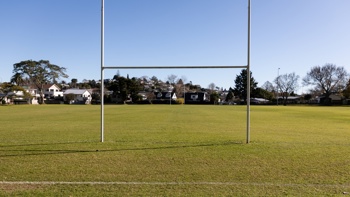The final crash investigator's report into the helicopter crash that killed war hero Steve Askin in the 2017 Port Hills fires found that the chopper's pilot-side doors had been removed, contributing to fluctuating pressure inside the cabin.
But the Transport Accident Investigation Commission (TAIC) report concluded that recent cannabis use by the former decorated SAS soldier likely did not impair his performance that day.
Wildfires broke out on the Port Hills above on February 13 last year.
Askin, a war hero wounded in a five-hour shootout in 2011 after the Taliban stormed the InterContinental Hotel in Kabul, joined the fight to put out the rampant fires.
Captain Tim Burfoot, the TAIC's chief investigator of accidents, says Askin's AS350 'Squirrel' helicopter was on its way to refill its monsoon bucket when it encountered turbulence and wind shear, and a side window dislodged into the cabin and flew out of an open door.
"All the doors on the pilot's side had been removed to make it easier for the pilot to see the monsoon bucket. The doors on the left side were closed. This door configuration was prohibited in the flight manual," Burfoot said.
TAIC found that it was "about as likely as not" that the door configuration contributed to the fluctuating pressure caused by the forward airspeed and turbulence, and that this "likely forced the side window panel into the cabin interior and ejecting out through the open side door".
"The pilot reduced speed, causing the tail rotor to dip," Burfoot said.
"The monsoon bucket swung up and backward, and the bucket line damaged the tail rotor assembly. This made the helicopter uncontrollable and it crashed."
The 38-year-old father-of-two was fatally injured.
TAIC said the key lessons from the accident are that:
• Vigilance during turbulence is vital.
• Pilots should understand the reasons for, and observe, the limitations of the aircraft they are flying.
• To help prevent future accidents, operators should record and investigate all operational incidents.
• Performance-impairing substances such as recreational drugs pose a serious risk to aviation safety. Their short- and long-term effects may be unpredictable and result in pilots being impaired when flying their aircraft. [The Commission found that it was very unlikely that the pilot's recent use of cannabis impaired his performance at the time of the accident.]
Take your Radio, Podcasts and Music with you









